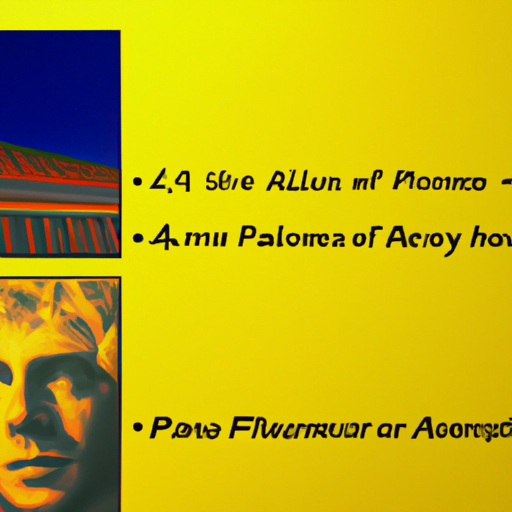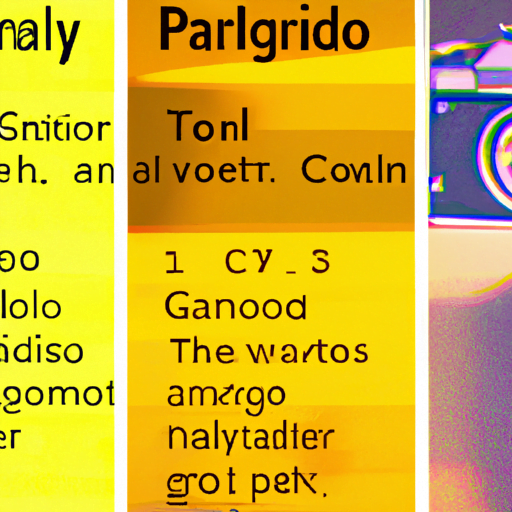
-
Table of Contents
The Impact of Typography in Gaming Graphics

Typography plays a crucial role in the overall design and aesthetics of gaming graphics. It not only enhances the visual appeal but also contributes to the immersive experience and effective communication within the game. In this article, we will explore the impact of typography in gaming graphics, examining its importance, examples of successful implementation, and the role it plays in enhancing the gaming experience.
The Importance of Typography in Gaming Graphics
Typography is more than just selecting a font for in-game text. It is a powerful tool that can evoke emotions, convey information, and create a cohesive visual identity for a game. Here are some key reasons why typography is important in gaming graphics:
- Setting the Tone: Typography sets the tone and atmosphere of a game. Whether it’s a horror game with eerie fonts or a fantasy game with whimsical lettering, the typography choice can instantly immerse players in the game’s world.
- Enhancing Readability: Clear and legible typography is essential for conveying important information to players. Whether it’s instructions, dialogue, or in-game menus, typography should be designed to ensure easy readability, especially on different screen sizes and resolutions.
- Building Brand Identity: Typography can contribute to building a strong brand identity for a game. Consistent use of typography across marketing materials, user interfaces, and in-game text helps create a recognizable and memorable visual style.
- Expressing Character and Story: Typography can be used to express the personality of characters and convey the narrative of the game. Different fonts can represent different eras, cultures, or even individual character traits, adding depth and richness to the gaming experience.
Examples of Successful Typography in Gaming Graphics
Now let’s explore some examples of successful implementation of typography in gaming graphics:
1. The Legend of Zelda: Breath of the Wild
The Legend of Zelda: Breath of the Wild is known for its beautiful and immersive world, and typography plays a significant role in enhancing the overall experience. The game uses a combination of elegant and organic fonts to convey a sense of adventure and mystery. The typography seamlessly blends with the game’s art style, creating a cohesive visual identity.
2. Overwatch
Overwatch, a popular multiplayer shooter game, utilizes bold and dynamic typography to convey a sense of action and excitement. The game’s logo and in-game text feature strong, angular fonts that reflect the game’s fast-paced gameplay and diverse cast of characters. The typography adds to the overall energy and intensity of the gaming experience.
3. Cuphead
Cuphead, a critically acclaimed indie game, draws inspiration from 1930s cartoons and jazz music. The typography in Cuphead reflects this aesthetic, with hand-drawn lettering reminiscent of vintage signage and posters. The typography not only enhances the game’s nostalgic feel but also contributes to its unique visual style.
The Role of Typography in Enhancing the Gaming Experience
Typography plays a vital role in enhancing the gaming experience in several ways:
- Immersion: Well-designed typography can immerse players in the game’s world, making them feel more connected to the characters and story. By using appropriate fonts, typography can transport players to different time periods, cultures, or even fictional realms.
- Clarity: Clear and legible typography ensures that players can easily understand instructions, dialogue, and other in-game text. This improves the overall gameplay experience and prevents frustration or confusion.
- Emotional Impact: Typography can evoke emotions and set the mood for different game scenarios. Whether it’s using bold, aggressive fonts for intense action sequences or elegant, flowing fonts for emotional moments, typography can enhance the emotional impact of the game.
- Accessibility: Typography plays a crucial role in making games accessible to a wider audience. By considering factors such as font size, contrast, and readability, game developers can ensure that players with visual impairments or reading difficulties can fully enjoy the gaming experience.
Conclusion
Typography is a powerful tool in gaming graphics that goes beyond mere aesthetics. It has a significant impact on the overall gaming experience, from setting the tone and atmosphere to conveying information and building brand identity. Successful implementation of typography can enhance immersion, improve readability, evoke emotions, and make games more accessible. Game developers and designers should carefully consider typography choices to create visually appealing and engaging gaming experiences.
